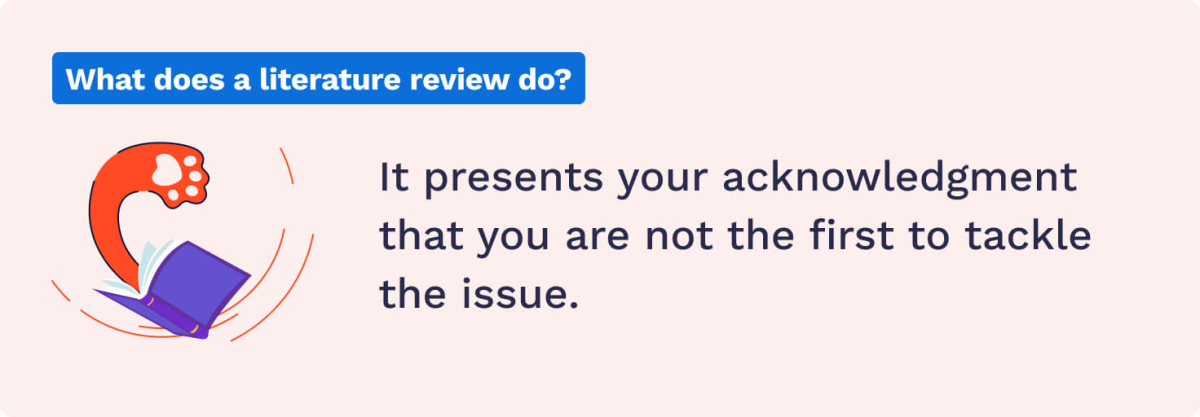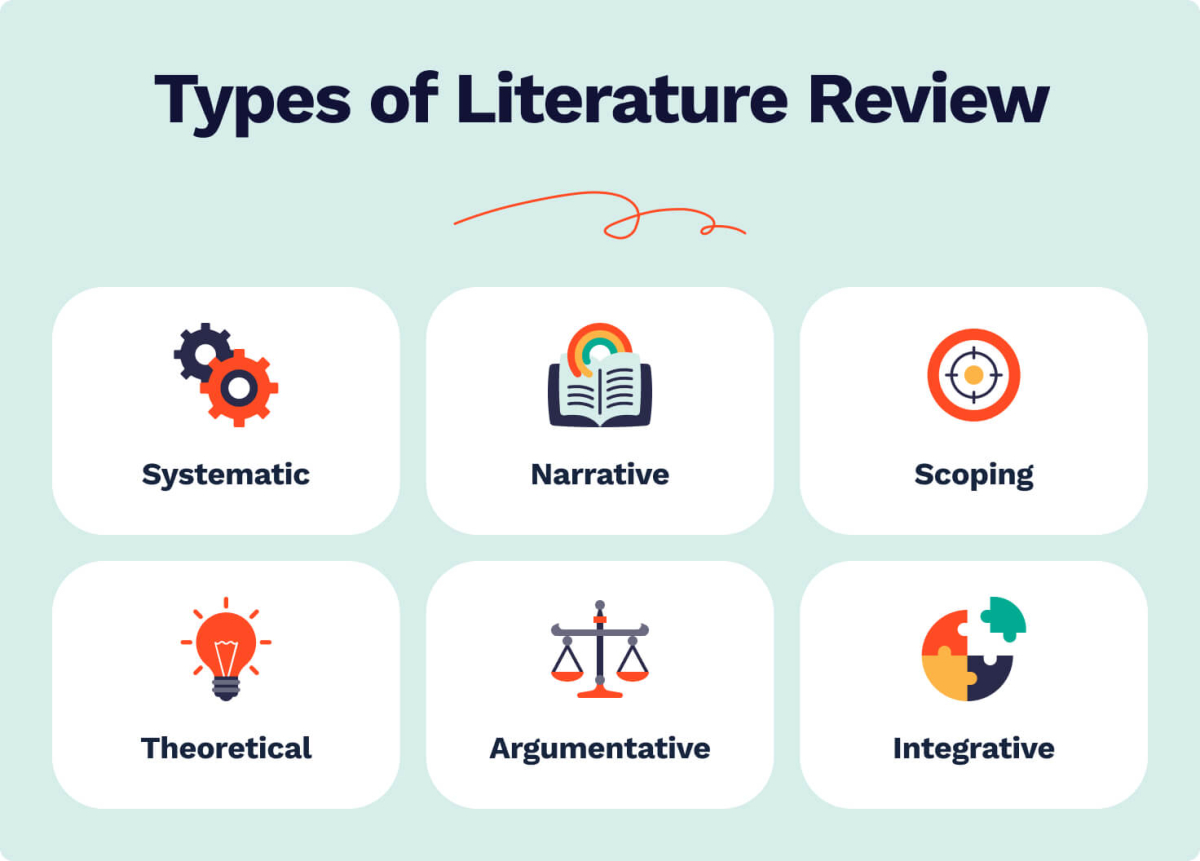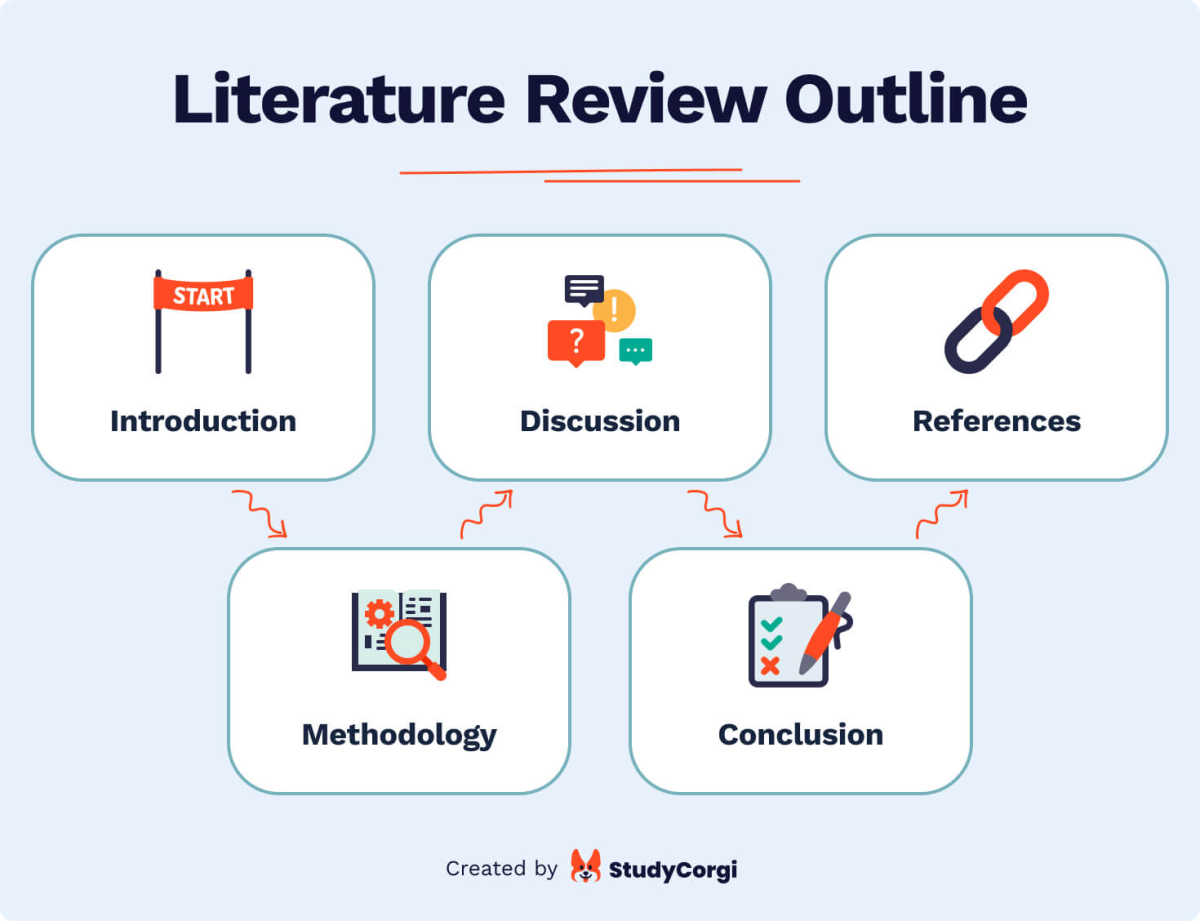A literature review is a variant of curtsy in scientific circles. It presents your acknowledgment that you are not the first to tackle the issue. Your predecessors have made progress in answering your research question, and you plan to start from the point they finished.

This article features examples of literature review topics on multiple knowledge areas. Additionally, you will find exhaustive disambiguation of all the types of a literature review, as well as its purposes, definition, outline, and formatting.
🔝 Top 15 Literature Review Topics
- What does the science say about extraterrestrial life?
- Redesigning organisms in synthetic biology: Where are we at now?
- Equality of human rights at the international level.
- Why do genes happen to be active or inactive?
- Legalizing physician-assisted suicide.
- Can an adult person change their native language?
- The most efficient study programs.
- The ethics of using surveillance cameras.
- The effect of reading fiction on your brain.
- What is kindness: A philosophical approach.
- Modern technologies can sift out fake news.
- Multiculturalism: A romantic myth or today’s reality?
- The demographics of liberal worldview in the US.
✍️ Literature Review Writing Tips
Speaking of a literature review, the definition is too broad to be used as writing guidance. It is an overview of credible materials on a particular research question. A literature review usually becomes chapter 1 in dissertations and theses, allowing to explore the current knowledge on the topic. It evaluates academic and professional articles, journal publications, books, and web-based resources.
A literature review is an indispensable part of a research paper. It serves many purposes, some of which are not evident.
What Is the Purpose of a Literature Review?
- To draw the background context;
- To compare your results with previous research;
- To justify your research methods;
- To frame research gaps and show the scientific novelty of your project;
- To explain the social value of your work;
- To demonstrate your knowledge of the referenced literature;
- To train your analytical thinking.
Types of Literature Review
Below you’ll find the 6 types of literature reviews.

Systematic Review
A systematic literature review is a most comprehensive and data-oriented type. It defines the timeframe of the selected literature and is subdivided into two categories:
- Meta-analysis (deductive research through standardized statistical procedures)
- Meta-synthesis (inductive study by non-statistical qualitative methods)
Narrative Review
It is also called a traditional or critical literature review. The purpose is to summarize the available material, critique it, and identify the gaps and inconsistencies. This type works well for almost any research question, provided it is sufficiently focused and limited in time or subject matter.
Scoping Review
As the name implies, it estimates the scope of available literature on a literature review topic. Unlike a systematic literature review, which aims to find the most specific research question, this type looks for the most general one. It answers the question of what else can be researched in the field.
Theoretical Review
A theoretical literature review explores the pool of theories that have so far accumulated on a concept. It lists the existing ideas, their relationships, and gaps. The purpose is to develop hypotheses to be tested in the experimental section.
Argumentative Review
This type provides the most selective literature review to prove or refute an argument already established in the research literature. However, this is also the most biased review among all types.
Integrative Review
This literature review integrates, synthesizes, and critiques the available secondary data to develop new research frameworks and perspectives.
Systematic Review vs. Literature Review vs. Annotated Bibliography
- Type #1: Systematic Review.
- Purpose: Eliminate bias and answer a focused question.
- Structure: Introduction – Methodology – Discussion – Conclusion – List of References.
- Number of sources: 3+
- Scope: Clearly defined (narrow) research question.
- Relationship between sources: How do they answer my research question?
- Organization: Evidence-based inductions or deductions.
- Type #2: Literature Review.
- Purpose: Summarize the most significant sources on the topic.
- Structure: Intro – Methods – Discussion – Conclusion – References.
- Number of sources: 1+
- Scope: Either a general topic or a specific question.
- Relationship between sources: Do they agree or disagree?
- Organization: Cause-and-effect, comparison or contrast, and classification.
- Type #3: Annotated Bibliography.
- Purpose: List the most suitable sources for additional reading with brief explanations.
- Structure: Numbered list according to a formal citation style (APA, MLA, or Chicago) plus a brief explanation of relevance and credibility of sources.
- Number of sources: 15-20
- Scope: General topic.
- Relationship between sources: How do they relate to the topic?
- Organization: Alphabetical order.
What Are the Four Stages of Literature Review?
The process of conducting a literature review can be divided into four stages:
- Formulating the problem. Choose a topic and its specific aspects.
- Searching the literature. Make up the preliminary bibliography list to be described in the literature review.
- Evaluating the data. Decide which sources are the most significant in understanding the topic.
- Analyzing and interpreting the essential findings.
Literature Review Outline
How long should a literature review be? It depends on the assignment requirements and your outline.
A literature review is often used as a part of a more general research paper. In such a case, you can limit yourself to the standard introduction –main body – conclusion formula.
In all the other situations, use the following literature review outline.

- Introduction
Trace the scope and highlight the importance of your review. Why did you choose the given topic or research question? How does it contribute to the previous study? - Methodology
We have listed the types of literature review above. Depending on your purposes, select one and explain why your choice is the best. You can also specify which logic you used while choosing the sources for your review. - Discussion
It is the central part of the text which compares, contrasts, and explains the relationships between various ideas you found in the bibliography items. - Conclusion
Are you satisfied with the result of your work? How will it help further research? Which gaps have you spotted, and which hypothesis could you generate? - List of references
As in any research paper, this is an indispensable part of your literature review. Be sure to follow the format requirements as provided below.
Literature Review Format
All citation styles require you to indicate the author’s name, book title, publication year, number of pages, and volume or issue number. This data is available in any printed edition, as publishers use it to identify their products.
It may sound simple until you discover that each citation style has a multi-page list of nuanced details specific to this format and inapplicable to any other.
Browse the guides for each of the most popular types below.
APA
APA style is a format for scholarly documents. It is particularly popular in the fields of social and behavioral sciences. APA is well-known for its simplicity in source references. Thus, a vast majority of American universities and colleges prefer this format.
MLA
MLA style manual is an abridged version of the MLA Handbook published by the Modern Language Association. It was created for students to assist in their research aspirations. Its 8th edition is addressed to secondary-school and undergraduate university and college teachers and students. The style is popular in humanities (modern languages, literature, cultural studies, and related disciplines).
Chicago
Chicago style (also called CMS or CMOS) is a style guide for American English. The University of Chicago Press first published it in 1906. Since then, it has had 17 editions and has become one of the most popular citation styles in the US. The guide instructs on editorial practice, grammar, document preparation, formatting, and even the use of the singular “they.”
💡 Literature Review Topics
Literature Review Topics in Education
- How can we make classrooms more inclusive?
- Waldorf schools and their concept.
- How do ADHD symptoms affect a student’s learning abilities?
- Methods of tracking the performance of schoolchildren.
- Resegregation in US schools.
- Is bilingual education realizable in contemporary schools?
- Growing violence incidents in educational institutions.
Political Science Literature Review Topics
- Gender cosmopolitanism in Sweden.
- Security policy is based on political ideology.
- The emotional effect of populism.
- The theory and classification of political speeches.
- Global measures in COVID-19 response.
- The international politics of the Arab world.
- How do we select our leaders?
- Officials in politics: Emotional labor.
- Relational peace between countries.
- The invisible force holding countries together.
Criminal Justice Literature Review Topics
- The problematic issues of prosecution and legal enforcement in Eastern Europe.
- Track the evolution of international criminal justice practices.
- Crime prevention methods.
- The evolution of criminology as a social science.
- The cycle of domestic violence: Theory and statistics.
- The patterns in child abuse perpetrators.
- Randomized experimental designs in criminology.
- Current measures to stop human trafficking in the US.
- How should we punish environmental crimes?
- Terrorism: Approaches to its definitions.
Sociology Literature Review Topics
- Does coded language help us fight racial inequality?
- International conflicts in terms of social representation theory.
- Is our society liberal or conservative?
- Racial salary gap in the US.
- Does federal aid succeed at fighting urban poverty?
- How does hate speech spur desensitization?
Nursing Literature Review Topics
Psychology Literature Review Topics
- The neurology of depression.
- Explore the psychological effects of loud noise.
- Why is it so hard to accept what contradicts our beliefs?
- The psychological mechanisms of compulsive eating.
- Why are some people more prone to discrimination and prejudice?
- Self-protection against grief.
- Non-verbal communication rates in different cultures.
- Love: Chemistry or feeling?
Biology Literature Review Topics
- Camouflage in plants.
- Color differences in male and female bird species.
- Natural reforestation: Too long to wait.
- Why are domestic plants weaker than wild ones?
- How can we edit DNA sequences?
- Which anti-COVID vaccines are the most effective and why?
- Cancer: An umbrella term for many diseases.
- Species that are important to our ecology.
Easy Literature Review Topics
- Sustainable agriculture: Our future reality.
- The scientific background behind music therapy.
- The latest findings in stopping brain aging.
- Data-driven personalization: Prospects and achievements.
![95 Literature Review Topics + How-to Guide [2026]](https://studycorgi.com/wp-content/uploads/2022/09/front-view-hardback-books-1-353x528.jpg)